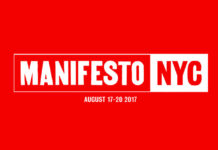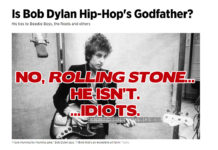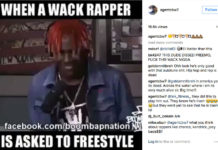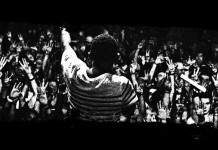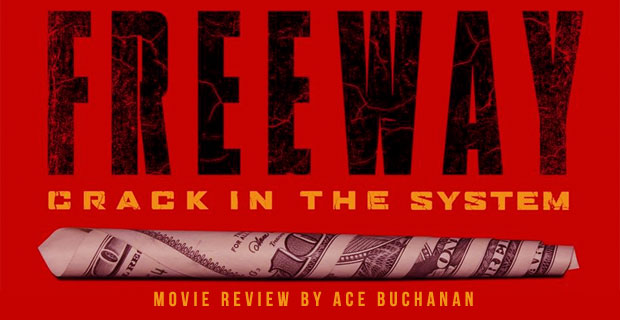Ace Buchanan reviews Freeway: Crack in the System, a Marc Levin project which looks at the story of the role of notorious former drug kingpin Freeway Ricky Ross, the CIA, law enforcement and more, during the crack era of the 1980s. The film is currently being screened throughout the United States.
Freeway: Crack In The System is a documentary detailing how crack cocaine was introduced to the inner cities and how it spread throughout the country in the early 1980s. Director Marc Levin did a great job in documenting the ups and downs in the life of Freeway Ricky Ross, the original “King of Crack,” the CIA’s involvement in trafficking drugs into the hoods of Los Angeles, police corruption, media cover-ups and scandals that involve Congress, the Contras and even the President of the United States.
The film tells how Ricky Ross rose from a promising tennis star to becoming the biggest hustler in Los Angeles. Tennis initially kept Ross off the streets, but his inability to read kept him out of college and back to the streets he worked so hard to stay away from. The man who once had dreams of becoming the next Arthur Ashe was now looking up to Super Fly.
Ross was such a legend in his hood that he influenced the lyrics spit by practically everyone in the gangsta rap movement which came out of that era. It is also believed that rapper Rick Ross got his stage name, and subject matter, from Freeway Ricky Ross. In fact, Ricky Ross unsuccessfully sued Ross (aka William Roberts) in an attempt to collect $10 million in damages and half of his royalties.
Freeway: Crack in the System takes care to point out how the United States government was involved in bringing drugs into the country, how profits were used to support the Contras in Nicaragua and how the laws were written so inner city drug dealers caught with small amounts of crack were to be punished more severely than people caught with larger amounts of drugs, including pure cocaine. The tale is also told how Freeway Ricky Ross was framed by dirty cops, left the drug game to open a chain of motels and was baited back in.
After spending 20 years of his life locked up behind bars and having all of his assets seized, Ricky Ross now visits schools and correctional facilities to talk to the youth. Ross tells his story with the good, the bad and the ugly and tries to show young people a better way of doing things, relating how he taught himself to read while he was in prison and how the words he read led to him beating a life sentence.
Being someone who grew up in the ghetto during the early 1980s, I think this is an excellent film which tells a very important story, not only from a hood perspective but as a part of American history. I feel this is something which should be shown in schools in every neighborhood and walk of life as a cautionary tale, as well as a no-hold-barred look at the complexity of this era in our country’s existence.
For more information on Freeway: Crack in the System, visit www.CrackInTheSystem.com
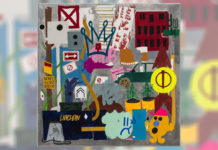


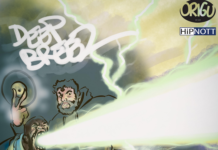

![The Underachievers – Crescendo [VIDEO]](https://www.birthplacemag.com/wp-content/uploads/2017/08/hqdefault-2-218x150.jpg)


![Fat Joe & Remy Ma ft. The-Dream – Heartbreak [VIDEO] Fat Joe Remy Ma The Dream - Heartbreak Video](https://www.birthplacemag.com/wp-content/uploads/2017/05/fat-joe-remy-ma-218x150.jpg)
![JSWISS featuring Chandanie – LML [VIDEO] JSWISS featuring Chandanie - LML [VIDEO]](https://www.birthplacemag.com/wp-content/uploads/2017/05/JSWISS-218x150.jpg)

![Akinyemi Ends Summer With “Summers” EP Release Show [9-17-17] Akinyemi 'Summers' EP release show at Brooklyn Bazaar](https://www.birthplacemag.com/wp-content/uploads/2017/09/summers-featured-218x150.jpg)
![4th Annual NYC VS EVERYBODY Yacht Party [9/16/17] #VSYacht 4th annual NYC VS Everybody Yacht Party#VSYacht](https://www.birthplacemag.com/wp-content/uploads/2017/09/vsyacht-218x150.jpg)
